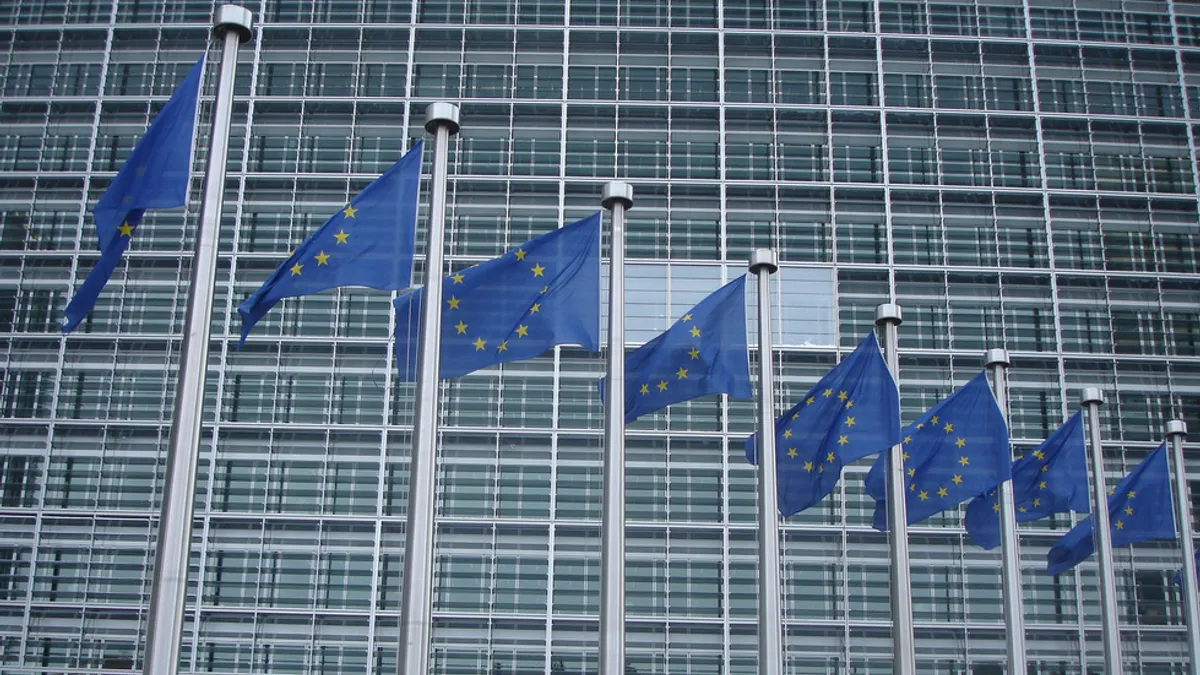Dive Brief:
- The Medical Device Coordination Group, a body that advises the European Commission, issued new guidance Thursday regarding a recent rule change allowing EU member states to deviate from normal procedures in renewing certain notified body designations and conducting surveillance on them during the COVID-19 era.
- The document applies to designating authorities and notified bodies that performed work under the outgoing Medical Devices Directive, whose designations would have expired between this week and May 25, 2021, with the new start date for the Medical Device Regulation being May 26 of next year.
- The guidance acknowledges certain limitations to typical surveillance reviews of notified bodies given coronavirus-related quarantine orders and travel restrictions, and lays out how typical on-site assessments may be replaced by remote activities.
Dive Insight:
The Medical Device Regulation, a more stringent replacement to the existing Medical Devices Directive, would have taken force this week if not for a one-year delay finalized at the end of April given the "extraordinary circumstances" caused by the COVID-19 pandemic.
The one-year delay to MDR's start date in turn required a one-year extension to MDD's expiration. That domino effect prompted a need to maintain validity of notified bodies operating under the older regime. The European Commission and member states on May 18 amended an implementing regulation regarding renewal of NB designations, as well as surveillance and monitoring of NBs, to allow for deviation from certain requirements in light of the less-than-normal circumstances created by the pandemic.
The guidance lays out how designating authorities should review notified bodies when considering a renewal.
Factors to consider include:
- "Assessment of relevant quality management system procedures, forms and records, in particular qualification criteria, procedures for selection and authorisation of persons involved in conformity assessment activities, procedures to ensure independence, objectivity and impartiality of the notified body’s activities."
- "Assessment of an appropriate number of the notified body’s reviews of the manufacturer’s technical documentation, including clinical evaluations."
- "Assessment of an appropriate number of the notified body’s personnel files."
- "Discussion of the results of the assessments of quality management documents and records with responsible personnel, including management responsible for the implementation and update of the quality management system as well as the notified body’s assessors responsible for product review, including clinical evaluation, final review and decision-making processes."
- "Review of the outcome of the most recent on-site surveillance assessments and observed audits as well as of recent extraordinary assessment activities conducted by the designating authority."
A designating authority may also consider recent joint assessments carried out in accordance with MDR, the guidance states.
The guidance notes that the renewal process usually involves an on-site assessment. But "when exceptional circumstances prevent a designating authority from carrying out such an on-site assessment, alternative assessment measures should be used."
Strategies may include assessing all relevant and required records off-site, and using remote surveillance assessments leveraging "the most advanced available" appropriate technologies.
The MDCG clarified that the guidance does not apply to the procedures for initial MDD designation for an NB nor for extending the scope of an NB's designation.
In regard to future notified body designations in the medical devices sector, to date there are 14 notified bodies designated to perform work related to the MDR.












